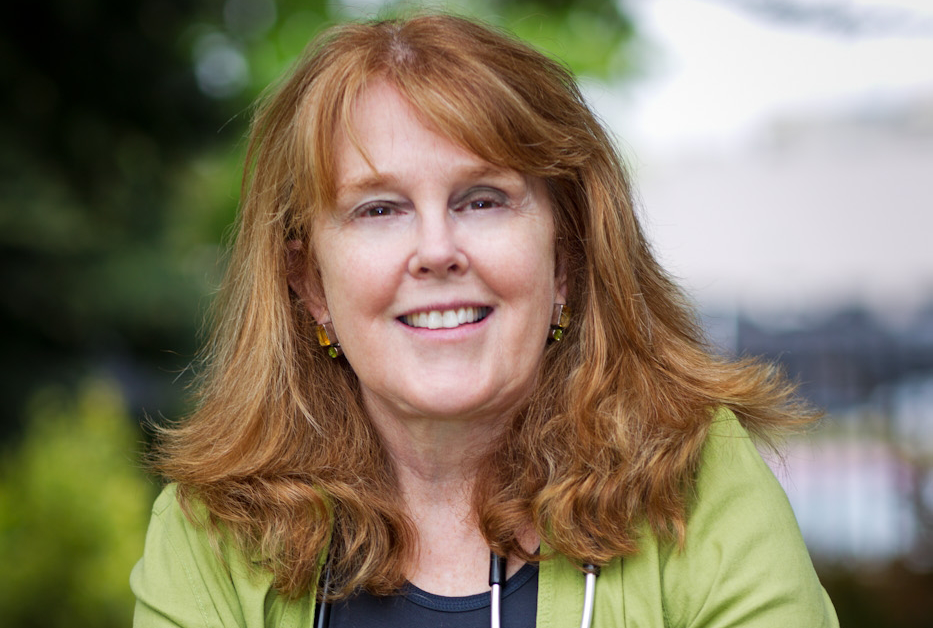A Doctor Without Borders
Like most doctors, I once thought that simply by going to medical school I’d checked that box marked “doing good.” I believed that taking excellent and compassionate care of patients was a noble goal.
I still do.
But I’ve been wondering lately about physicians who take a broader-than-average view of their responsibilities toward patients, who take “doing good” to a different level than most of their colleagues. What motivates and sustains them? How do they avoid burning out?
I decided to visit Dr. Roseanna Means, a Brigham and Women’s internist who’s spent much of the last 30 years caring for homeless women and children.
Over cans of Diet Coke at the Wellesley headquarters of Health Care Without Walls, the nonprofit she founded in 1999, Means, a small, intense red-haired woman in her late 50s, told me the story of her life, both personal and professional — though the distinction between the two has always been blurry.
Divorce and alcoholism dominated her childhood, but so did a call to activism, personified by the Kennedys. Robert F. Kennedy was her mother’s classmate at Milton Academy, and Joseph P. Kennedy II was Means’s. As a teenager, she organized Milton’s first Earth Day.
Though Means entered medical school intent on healing the poor, it soon became clear to her that this was not the school’s mission. She recalls stepping over the homeless on the street as she hurried to class to learn how to care for people.
In the 1980s, she moved her family to Costa Rica for a year, concerned that her young sons were getting too narrow a view of the world from suburban Boston.
During her residency — a job most find plenty self-sacrificing — she spent three months providing medical care to Khmer refugees on the Cambodian-Thai border.
“That was the defining moment for me,” she recalled. With limited access to medication and diagnostic testing, she told me, “you had to be a doctor on your feet,” improvising, addressing anything that affects quality of life. Further, in Asia she began to think of physicians not simply as healers, but as agents of social justice.
In the next few years, she brought both of these ideas to her work with the homeless. A manual she’s written for medical students and others new to this population covers foot care, nutrition, frostbite, subsidized housing, and domestic violence — issues about which doctors and nurses usually learn little.
Early on, Means noticed that women were much less likely than men to use medical and other services offered to the homeless. Shame and fear of being found by an abusive partner and of being beaten, raped, or robbed, all deter women from accepting government care programs. She founded Health Care Without Walls to meet the medical needs of homeless and impoverished women and children. Her team of paid nurse case managers, volunteer physicians, and mental health professionals, now provides 10,000 medical visits a year in seven shelters. Funded by donations and grants, not by taxpayer money, Means estimates that her organization has saved the Commonwealth about $15 million annually in acute and preventive care.
I visited the Newbury Street women’s shelter where Means sees patients every Tuesday. The shelter is housed in a church with some pretty upscale neighbors — Brooks Brothers and Armani to name two — and I imagined a grimly contrasting scene within. But Roseanna Means’s clinic, like her office, isn’t what you’d expect.
In the church’s brightly lit basement cafe, women of all ages ate breakfast.
Some scanned laptops or flipped through magazines. Two chatted over ceramic mugs of coffee. I spotted a young woman in crisp blue scrubs with a stethoscope slung around her neck and told her I was there to see Dr. Means. She looked puzzled, and I realized she was not a staff member but a guest, eating breakfast on her way to school or work.
The homeless and poor, Means later told me, don’t always look the way you’d think. Some work, some (but by no means most) have mental illness, many are educated. What they have in common is a history of trauma. Means says that nearly all of her patients have been victims of abuse or violence. These experiences make it difficult for women to trust anyone, including doctors. Some of the women at the shelter actually have doctors elsewhere, but don’t trust them and rely on Means as a liaison and advocate. The fact that she’s also experienced trauma — divorce, violence, cancer, the loss of a child, and financial hardship — helps Means create alliances with her patients.
Women arriving for breakfast or lunch can sign up for a medical appointment. Means escorts them up to her fourth floor clinic one by one, first come first served. There are no co- pays, no insurance forms, and minimal medical records.
No one looks at the clock — she spends as long with her patients as they need.
This is, as she says wryly, “concierge care for the homeless,” and it satisfies the caregivers as much as the patients. Means has a waiting list of doctors and nurses eager to volunteer.
One of the patients Means saw the morning I visited was Rochelle.
In the past, Rochelle had been homeless and supported herself through prostitution. She now has a place to live and, with Means’s encouragement, recently completed training to be a medical assistant.
Rochelle is undergoing treatment for breast cancer. Means checks her mastectomy scar, congratulates her on finishing her degree, and asks about job prospects and her chemotherapy-induced nausea. At the end of the visit, Means hugs Rochelle and Rochelle hugs her back. Rochelle hugs me, too, and even offers me advice on what to write in this column. “Just say,” she tells me, “that here, they do health care right.”
For more information about Dr. Means and her work visit: healthcarewithoutwalls.org.
—
By Dr. Suzanne Koven
Globe Correspondent / April 23, 2012

